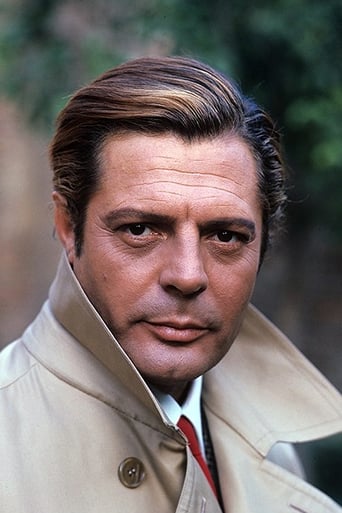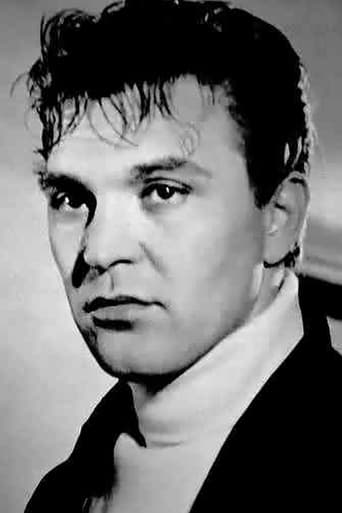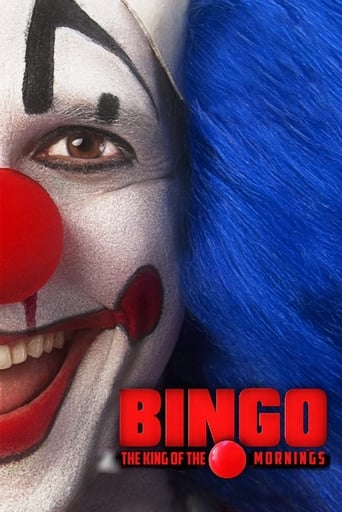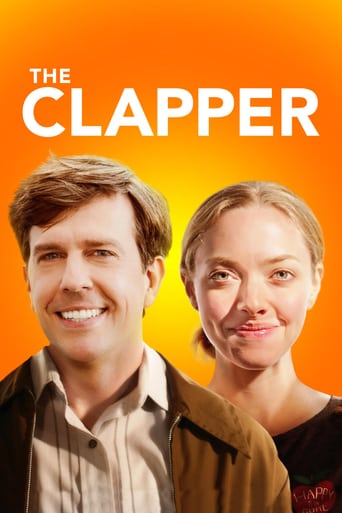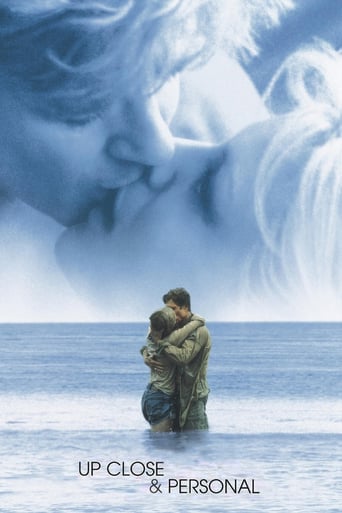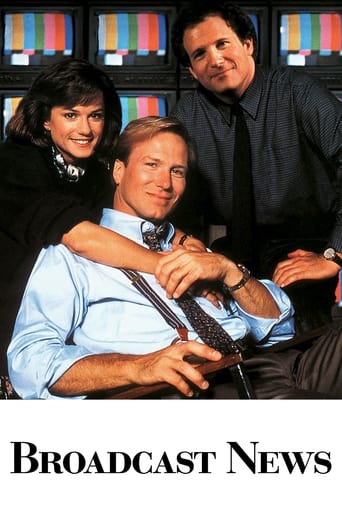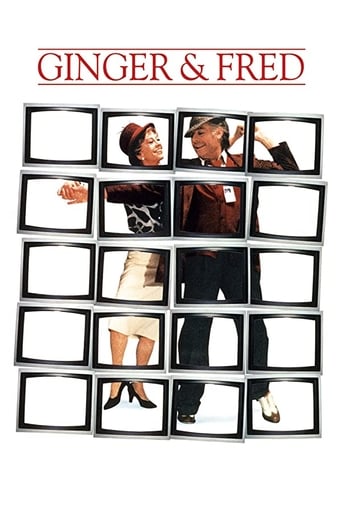
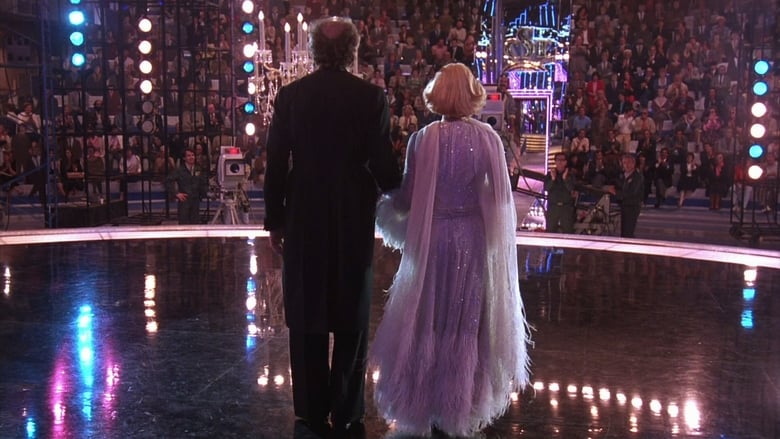
Ginger and Fred (1986)
Amelia and Pippo are reunited after several decades to perform their old music-hall act, imitating Fred Astaire and Ginger Rogers, on a TV variety show.
Watch Trailer
Cast


Similar titles
Reviews
Marcello Mastroianni and Giulietta Masina star in "Ginger and Fred" from 1986, directed by Federico Fellini.Amelia and Pippo once had a successful act imitating Fred and Ginger. Thirty years after their act, they are asked to dance in a special Christmas show for TV called "We Are Proud To Present."It's a real freak show with the most bizarre acts you've ever seen, including a priest who left the priesthood and is now engaged, a man of the cloth who can levitate himself, lookalikes - some very strange acts.Amelia and Pippo not only danced together but were involved. However Amelia married, had a daughter and is now widowed. Pippo married as well.Amelia is worried that Pippo isn't up to the dancing, and when the power goes out in the theater, the two consider bolting.Bittersweet film with marvelous acting and real chemistry between the two.Masina was married to Fellini and died five months after he did.
Though we had various Fellini movies from the touching sweetness in LO SCEICCO BIANCO, the touching drama in LA STRADA through purely psychoanalytical realities in GIULIETTA DEGLI SPIRITI or CITY OF WOMEN to the autobiographical uniqueness in OTTO E MEZZO, this film appears to be a unique phenomenon. More to say, when you decide to see GINGER E FRED, you do not notice nor feel the Felliniesque nature so much but something different. What is it that one notices? (you may reflect) A sort of return to past memories...? Just a simple story...? Another movie within the four walls of a psyche...? Is it, perhaps, a sentiment brought to tears? No, since Fellini never jerked fake tears...GINGER E FRED is a wonderful film about a moment in the fading career of a couple whose dance once proved a smashing success and who see each other again after all these years just to show their 'pearl' to the young generation. Although it is no longer a heyday of their career, Pippo (Marcello Mastroianni) and Amelia (Giulietta Masina) decide to come to Rome to perform their dance. Yet, the both soon realize that this is not the Rome they knew and loved. The problem does not lie in the changed streets, transformed centres and more vehicles but in the generation they will have to deal with this time. There are lots of noises with flashes, mayors with their doubles and cameras all around and everything surrounded by the fake glamour of commercial Christmas and loud 'Buon Natale' wishes with kisses...all for the sake of a strange monster that such crowds dedicated their lives to...TELEVISION. Here lies the core gist... Will 'TV robots' and 'sensation consumers' be able to find the couple's dance worthy noticing? Fellini's film is truly a satire on TV generation, on the people who cannot imagine living without it and whom he really ridicules. Through many moments of wit, including VIPs' visits, interviews, chaos of TV shows, shallow effects, fake mysticism, lack of art, pseudo careers, talks of plastic surgeries and many others, he seems to draw our attention to the fact what strange social phenomenon it is and, moreover, what impact it has on society, on blinded crowds. It is important to mention that he sometimes becomes too cynical through exaggeration, particularly in case of a priest and miracles ridiculed at a show. It is true that Fellini was critical of the Church and no one should skip that aspect not to make viewers confused. In case of Church, one may reject his view thoroughly. Yet, his points about sheer chaos of TV shows appear to be particularly accurate.Who speaks on Fellini's behalf is, again, wonderful Italian actor Marcello Mastroianni. He portrays Pippo who cannot find himself in this weird unjust reality, who sneers weak artists who "p**s to bed," who doubts the sudden career of mayor's daughter, who understands the codes of conversation unknown to simple "Boffoni". Although it is in no way an action movie and lots of moments may occur tedious and chaotic in the long run, you realize the feelings of Pippo whilst deeper analysis, trying to identify with him, with his thoughts and disappointment. You as a viewer are with him. Pippo is contrasted to all the rest, like Giulietta in GIULIETTA DEGLI SPIRITI. His world is no longer popular because nobody really knows it.The performances are brilliant but this applies to the two: Marcello Mastroianni and Giulietta Masina. Their presence adds much genuineness to the characters since they both could identify their roles with the very moments of their lives (1986). It is, in this respect, a sort of Fellini's tribute to the two but, at the same time, his determined cry in the declining art the director condemns television for. Moreover, he also seems to blame TV for depriving people of something more ambitious and entertaining, for creating a monstrous reality of noise that carries no meaning just sheer mumbling. But let me say something about the couple's performances.You as a viewer are almost all the time with them. They constitute the 'oasis of normality' in the whole 'madness' around. They are perfect as entertainers, as dramatists; finally as dancers. Their very best moments include the rehearsal filled with the sentiments of the past, a funny scene in the bus when a recording says quietly yet powerfully 'Pippo'... and the quintessential of the movie, their dance. Here, Fellini truly identifies with Mastroianni as he did in OTTO E MEZZO giving him the lead and shows the greatest respect for his wife Giulietta Masina. Here, she is excellent in a different way than she was years earlier in LA STRADA, LE NOTTI DI CABIRIA or GIULIETTA DEGLI SPIRITI, yet equally adorable as THE Woman of Cinema.Remember, in order to see this film, you don't have to know Fellini, his particular style executed foremost in the 1960s and 1970s. Knowing TV shows will suffice for you to laugh, to criticize, to mock and to identify with the famous Italian director. Fellini's criticism appears to be constructive as well as he seems to say to all of us: "Turn off your TV this time and give up listening to voices of meaningless entertainment. Tonight, you will listen to my voice" Can we refuse? NO, for the sake of Marcello and, foremost, for the sake of Giulietta!!!
Fellini had at his disposal a small, sharply focused, touching story about two unexceptional people whose time has passed - a time in which they were recognized for their imitation of others' style and talents. Each is lonely and presumably much in need of what the other can offer, but we are left with the feeling that, despite her hesitant offer, they will not get together.Unfortunately Fellini's self-indulgence turns what might- have- been into a sprawling, overdone satire of commercial television in which the story of those two is buried. There are two pictures here, and Fellini emphasizes the wrong one. Granted that his direction, in and of itself, is often brilliant, he is too inclined to make every film a tour de force. His segment of "Spirits of the Dead," which I recently saw for the first time, suffers in the same way.
Ginger e Fred is much more a film about the Italian psyche than a film about an old dance team that reunites after 40 years to appear on a TV variety show. It takes place at Christmastime, and having spent Christmas in Rome, the fun-insane carnival atmosphere Fellini depicts is pretty accurate, but exaggerated for film. Walking around Rome I found subconscious playing back bits of the soundtrack and it was only then that I realized how much I love this film. It's also about people who time leave behind. And about two people who are tragically unable to say how much they do love each other. It's also very very funny. Fellini go the idea for the film after seeing his older films butchered on Italian TV. A highlight is an old woman who was paid not to watch TV for a month. She's brought into the studio a mental wreck, swearing she'll never do it again and promises to watch more and more TV.



